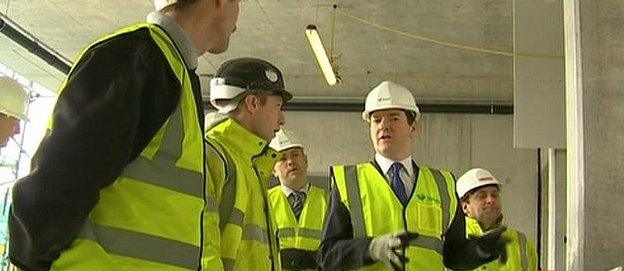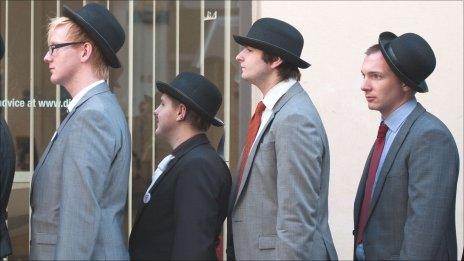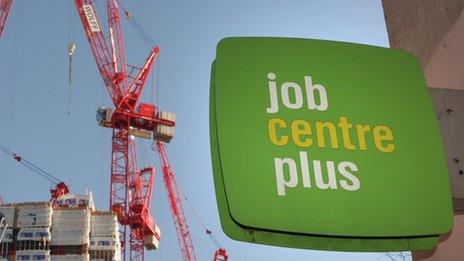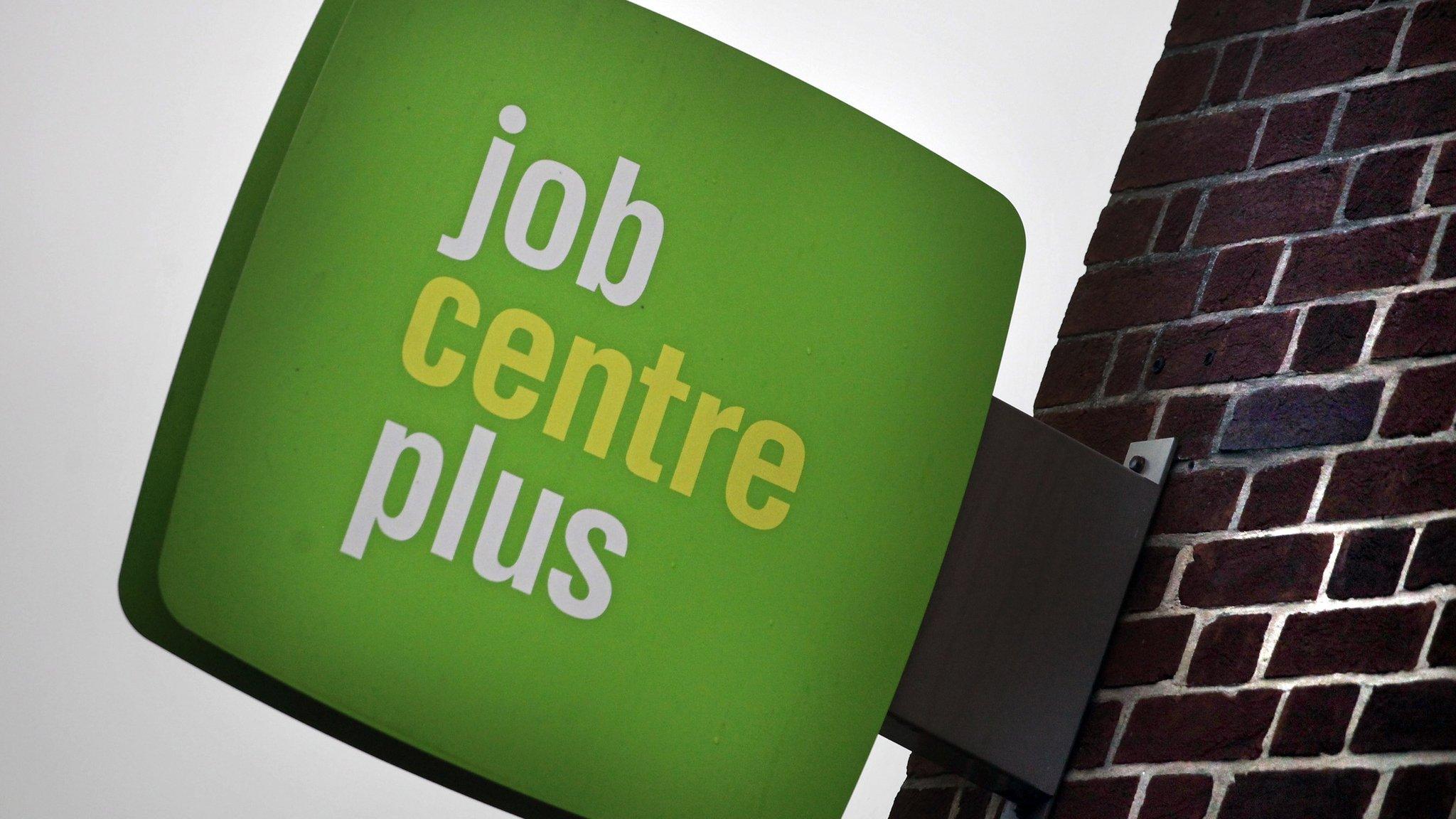George Osborne commits to 'fight for full employment'
- Published
George Osborne: "Our work is not done"
George Osborne has committed the Conservatives to targeting "full employment", saying that tax and welfare changes would help achieve it.
The chancellor said "unemployment is never a price worth paying, but artificial jobs paid for with borrowed money doesn't work either".
The Conservatives broke with the post-war consensus on seeking full employment during the Thatcher years.
Labour has its own "jobs guarantee" and targets full employment as a goal.
The BBC's Norman Smith said that by targeting full employment, Mr Osborne was "parking his tanks on traditional Labour territory".
In his speech in Essex, the chancellor said governments which tried to guarantee people a job were "doomed to fail" - as they ended up increasing spending to unsustainable levels, resulting in taxes going up and jobs being lost.
There are a number of different definitions of full employment:
Sir William Beveridge, the architect of the welfare state, thought it should be when 3% of the workforce is unemployed
Other economists have spoken of a higher "natural rate" of unemployment, where nobody stays out of work for long, with joblessness fluctuating at between 5% and 6%
The lowest recorded level of unemployment was 215,800, or 1%, in July 1955. The most recent figures this year put the unemployment rate at 7.2% of the population
Mr Osborne declined to define full employment, but said people between jobs or unable to work or with caring responsibilities would not be included
However his goal was to have the highest employment rate in the G7, and as part of his plan he expected those who can work to take the jobs available
BBC political editor Nick Robinson said the chancellor's aim was "to identify an economic ambition which people can connect with emotionally; one which is forward-looking and which highlights the surprise success of the British economy since the banks crashed".
Speaking at Tilbury docks, Mr Osborne said: "You can't abolish boom and bust. There are always going to be ups and downs to the economic cycle."
But he appeared to reject comments made by former Chancellor Lord Lamont, who said in 1991 that unemployment was a price "well worth paying" to get inflation down.

George Osborne on a construction site ahead of his speech in Essex
He said he was committed to securing the "fullest" possible level of employment by helping business to create new jobs and cutting taxes.
"That's why today I'm making a new commitment - a commitment to fight for full employment in Britain."
He said there was "no reason why Britain shouldn't aim to have the highest employment rate of any of the world's leading economies - to have more people working than any of the other countries in the G7 group".
Pressed on what an unacceptable level of unemployment was, Mr Osborne did not mention a specific figure but said his ambition was to make the UK "the best place in the world to create a job; to get a job; to keep a job; to be helped to look for another job if you lose one".
"A modern approach to full employment means backing business. It means cutting the tax on jobs and reforming welfare."
Reacting to Mr Osborne's comments, Lord Lamont told Channel Four News: "I think the speech obviously had a political context.
"It was designed to get on to Labour's ground; it was also designed to insulate the Conservative Party against certain accusations about its attitude to unemployment."
'Scar'
For Labour, shadow chief secretary to the Treasury Chris Leslie said the government should have backed the idea a long time ago.
"A lot of this rhetoric is not matched by the reality. He (George Osborne) should tell this to the 900,000 young people who have been out of the work for more than 12 months or more".
"Long-term youth unemployment has doubled under his watch. Actually it's an apology he should have been giving so far."
Mr Leslie said Labour "absolutely" supported the idea of full employment, describing long-term or prolonged unemployment as a "scar on the economy".
Long-term youth unemployment has doubled under Osborne's watch according to Labour's shadow chief secretary to the Treasury, Chris Leslie
There are a number of different definitions of full employment.
Sir William Beveridge, the architect of the welfare state, thought it should be 3% of the economically active population but other economists have spoken of a higher "natural rate" of unemployment, where nobody stays out of work for long, with joblessness fluctuating between 5% and 6%.
Asked if he shared the chancellor's ambition, Deputy Prime Minister Nick Clegg said many people had accepted real terms pay cuts in recent years to safeguard their jobs and the government must continue to support them as well as creating the climate for new jobs.
"All I want is the maximum number of people to be employed in the economy and the minimum number to be jobless," he told his monthly news conference. "It is as simple as that."
The TUC's Richard Exell said he welcomed the announcement but expressed doubts that the conditions were in place to create an extra million jobs.
"You can't get people priced into work by cutting benefits when the problem is wages are too low," he said.
In his speech, Mr Osborne also said cuts to personal and business taxes due to take effect this week were the "largest for two decades".
The rise in the personal tax allowance from £6,500 to £10,000 since May 2010, had enabled people to keep £700 more of their income, he added.
- Published13 October 2011

- Published17 May 2013

- Published28 April 2014
